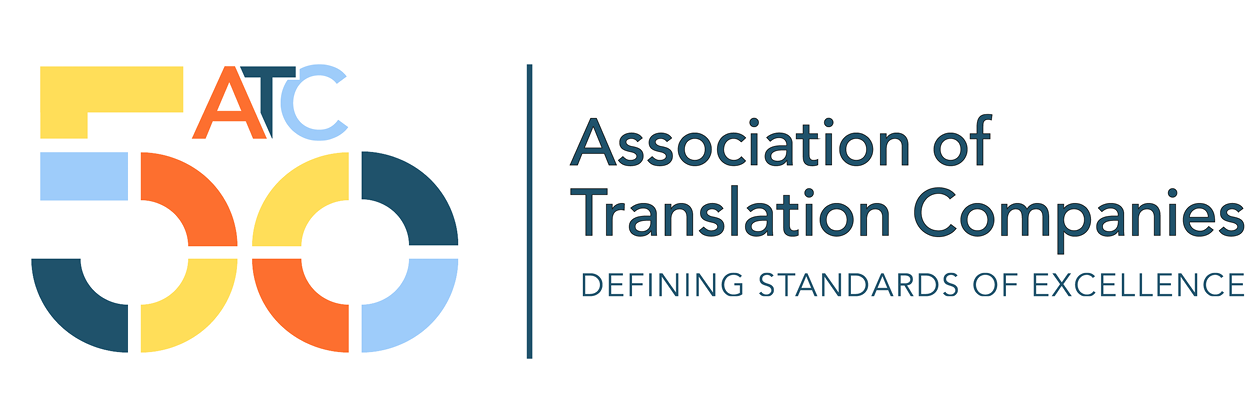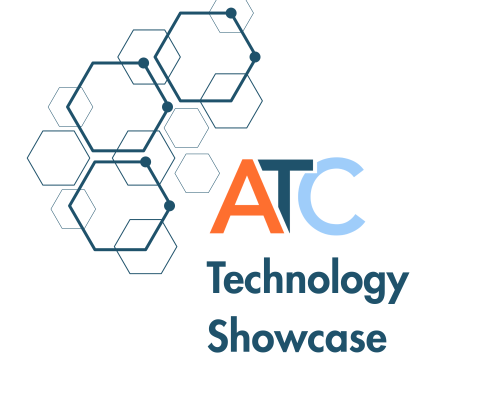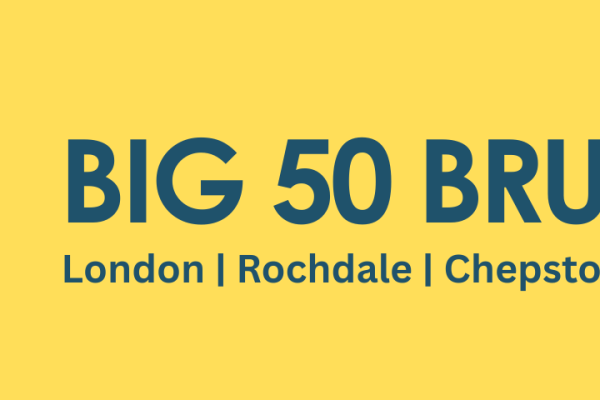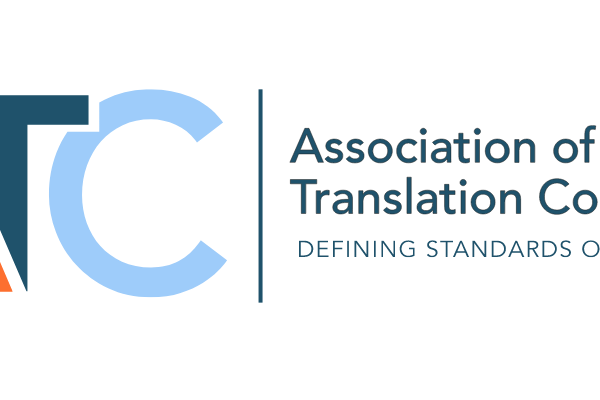ATC Technology Showcase The rapid adoption of AI and machine translation has fundamentally changed how…
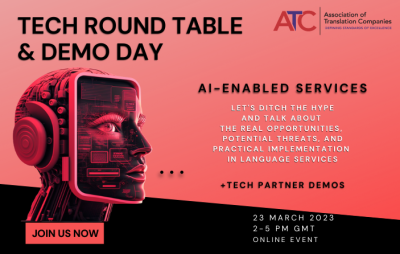
Takeaways from the ATC’s AI-enabled Services Panel
In March 2023, the ATC brought together language service researchers and tech experts Konstantin Dranch from Custom.MT and Laszlo Varga from Nimdzi Insights with ATC member company representatives Matt Train from Toppan Digital Language and Helen Provart from Peak Translations.
We wanted to take a step back from the hype surrounding the emerging AI solutions such as ChatGPT and Google’s Bard, and talk about the real opportunities, potential threats and practical implementation of AI-enabled services in the language industry.
Here are some of the key takeaways from our panel.
“Machine Translation has been around for a long time, but it’s still accelerating in terms of quality and features. And now we have Large Language Models like ChatGPT which will also continue to develop and evolve. The emerging AI-enabled solutions are clearly incredibly powerful tools, but for the language services industry, they don’t yet have a single clear kind of use. It’s early days from a business perspective, and there is a lot of noise around which we need to navigate. The question is about how we bridge the gap, tune out the noise and the hype, and think about what we could do today.
It’s really easy to satisfy clients, but it’s equally easy to disappoint them. We need to try this new tech out, find the solutions that work for our companies, work behind the scenes and continue delivering what the client wants. For the client, it doesn’t much matter how the translation has been done, its value to them is still the same.”
Matt Train, Toppan Digital Language
”We’ve seen how game developers start with one type of service, adding others as opportunities arise and problems need to be overcome, building revenue and expanding specialist services to add value to their customer group, doing the same thing with more tech and less human effort. The same happens in the language services industry – we’ve integrated machine translation, we’ve faced the price pressures, we’ve come out the other side. There’s nothing inherently special about the tech challenges in the language services industry, it happens across every sector.
The new kids are going to disrupt the old kids, but problems will always need expert to solve them. And maybe your services company can offer something that resolves a client’s problem, provides the experts the client needs. It could be you providing the solutions of the future.”
Konstantin Dranch, Custom.MT
“In an enterprise localization environment, Large Language Models like ChatGPT are not that different from MT. They are all about the data, and every single enterprise client is looking to have their own customised version of the technology – but one that’s safe, and one where their data stays secure.
But even if GPT models become de facto best translation engines out there, nobody in their right mind would translate business-critical or client-engaging marketing material without somebody at the end of the pipeline who validates the output. And LSPs have an advantage there, with pools of language, content type and subject matter experts. But you need to have a defined purpose of what you want to achieve, within your organisation and with your clients. Because when you’re developing tech or new services, it’s also about customer intimacy, how well you understand your client’s needs.
My recommendation to LSPs is clear, you have to start experimenting. Go ahead and do it, and then see how it could add value to your clients.”
Laszlo Varga, Nimdzi Insights
“The challenges a small language service company faces are all about access to the right information and the right talent to start exploring and implementing these emerging tech solutions. And that’s not an easy thing to put in place in a small company because there is always a cost implication.
My company is small, but we have been around for 45 years. Our clients appreciate the trust, the great service, and the partnership they have with us. So, they’re not asking for AI-enabled services, they’re not even asking for machine translation – they just want a good quality service, and what we do in the background is what we do in the background. For us, it’s finding the technologies that fit well with us and our processes, and the incremental improvements that made a difference to our service.”
Helen Provart, Peak Translations
Next steps on your AI-enabled services journey
New AI-enabled services move fast, and their practical applications in the language services space are only just emerging.
ATC panellist Konstantin Dranch’s company Custom.MT is one of the key industry players sharing information and insights, and bringing the language services community together to identify and implement new ways of working.
Delve deeper with the first ChatGPT in Localization event’s recording, and sign up to the second one on 26 April 2023 here.
Stay up-to-date with the conversation and language services industry solutions by following industry research companies and news with Nimdzi Insights, Slator and MultiLingual. Follow industry thought leaders Laszlo Varga, Kirti Vashee, Konstantin Dranch and Manuel Herranz on LinkedIn. Join the discussion, tell us how AI-enabled services are changing, or not changing your services.
